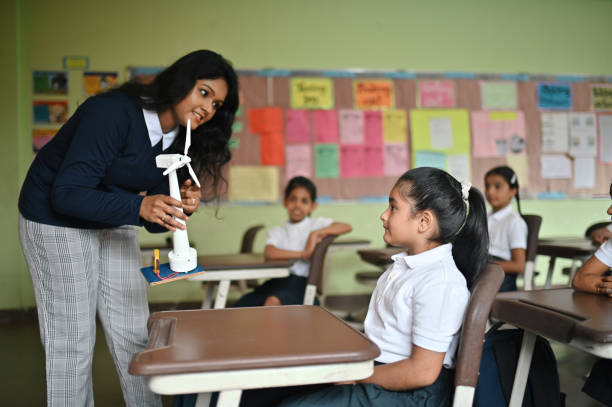Education is more than just a fundamental human right; it is a powerful tool that shapes individuals and societies. It is the key to unlocking potential, breaking cycles of poverty, and fostering a more equitable world. The impact of education extends far beyond the classroom; it influences economic stability, personal development, and societal progress.
The Foundation of Personal Growth
Education is the cornerstone of personal development. It equips individuals with the knowledge and skills needed to navigate the world, make informed decisions, and pursue their passions. From early childhood education to higher learning, each stage plays a crucial role in shaping a person’s abilities and character.
- • Early Childhood Education: The early years of education are vital for cognitive, social, and emotional development. Programs focused on early learning help children build a solid foundation, promoting literacy, numeracy, and critical thinking skills.
- • Primary and Secondary Education: As children progress to primary and secondary education, they acquire fundamental academic knowledge and essential life skills. This stage also helps them discover their interests and talents, paving the way for future careers.
- • Higher Education and Vocational Training: Higher education and vocational training offer advanced knowledge and specialized skills, preparing individuals for professional success. Universities, colleges, and trade schools provide pathways to various careers, from engineering and medicine to arts and technology.
Education and Economic Development
Education is a significant driver of economic growth. A well-educated workforce is more productive, innovative, and adaptable, contributing to a country’s economic stability and development.
- • Enhanced Productivity: Educated individuals possess the skills and knowledge to perform tasks more efficiently, leading to increased productivity. This, in turn, boosts economic output and competitiveness.
- • Innovation and Entrepreneurship: Education fosters creativity and innovation, encouraging individuals to explore new ideas and start businesses. Entrepreneurs with strong educational backgrounds are more likely to succeed and drive economic progress.
- • Reduced Poverty: Education helps break the cycle of poverty by providing individuals with better job opportunities and higher earning potential. As people earn more, they contribute to the overall economic prosperity of their communities.
Challenges and Opportunities
Despite the clear benefits of education, many challenges remain, particularly in underserved communities and developing countries.
- • Access and Equity: Ensuring equal access to quality education is a significant challenge. Socioeconomic barriers, geographical location, and gender disparities often hinder educational opportunities for marginalized groups.
- • Quality of Education: The quality of education varies widely, with some regions facing shortages of trained teachers, inadequate resources, and outdated curricula. Improving the quality of education is essential for maximizing its impact.
- • Lifelong Learning: In today’s rapidly changing world, lifelong learning is crucial. Continued education and skill development are necessary to keep pace with technological advancements and evolving job markets.
Addressing these challenges requires a concerted effort from governments, organizations, and communities. Investing in education, promoting inclusive policies, and supporting innovative approaches can help overcome barriers and ensure that everyone has the opportunity to succeed.
The Role of Individuals and Communities
Individuals and communities play a vital role in supporting education. Volunteering, mentoring, and donating to educational causes can make a significant difference.
- • Volunteering: Getting involved in local schools or educational programs can provide valuable support and enrich students’ learning experiences. Volunteers can assist with tutoring, extracurricular activities, and classroom management.
- • Mentoring: Mentoring programs connect experienced professionals with students and young adults, offering guidance, career advice, and inspiration. Mentors help shape the future of the next generation by sharing their knowledge and experiences.
- • Donating: Financial contributions and resource donations support educational institutions and initiatives. Donations can provide scholarships, build schools, and fund educational materials.
Conclusion
Education is a transformative force with the power to change lives and societies. By investing in education, addressing challenges, and supporting initiatives, we can create a brighter future for individuals and communities worldwide. Education empowers people to reach their full potential, drive economic growth, and contribute to a more just and equitable world. Let us continue to champion the cause of education and work together to ensure that every individual has the opportunity to learn, grow, and succeed.
